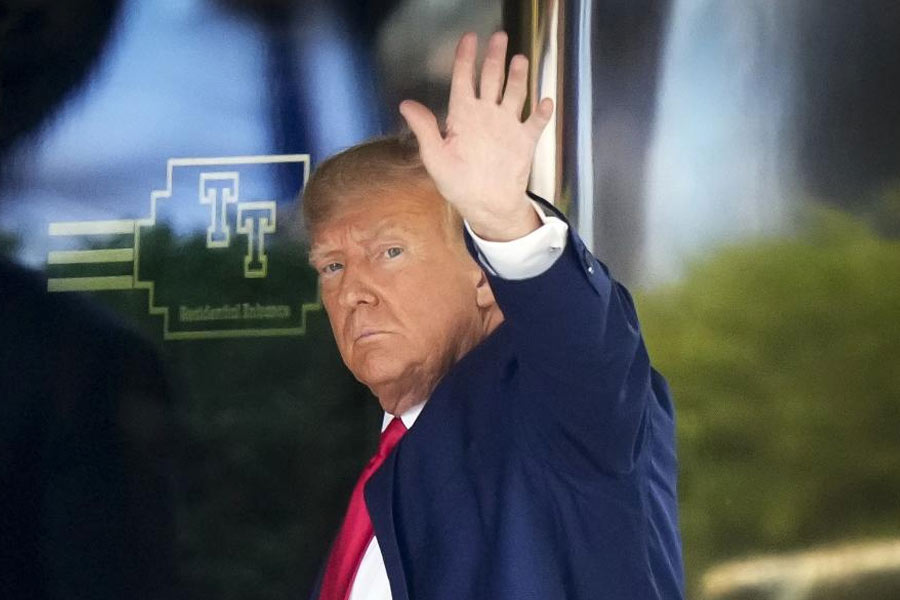The warning of US President-elect Donald Trump to BRICS countries to impose 100 per cent customs duties if the BRICS group would replace the US dollar is unrealistic, and India should focus on developing a workable local currency trading system, think tank GTRI said on Sunday.
BRICS, formed in 2009, is the only major international group of which the US is not a part. Its other members are South Africa, Iran, Egypt, Ethiopia, and the UAE. Over the past few years a few of its member countries, in particular Russia and China, are seeking an alternative to the US dollar or creating their own BRICS currency. India has so far not been part of the move.
On Saturday, Trump warned BRICS nations against such a move.
The Global Trade Research Initiative (GTRI) said that tariffs of this scale would harm the US consumers only as it would push prices on imports, disrupt global trade, and risk retaliation from key trading partners.
"Trump's threat to impose 100 per cent tariffs on countries adopting a BRICS currency is unrealistic and more symbolic than practical. For India, the prudent approach is to focus on making local currency trading workable by establishing a transparent and open currency exchange," GTRI Founder Ajay Srivastava said.
He said that India's best interests lie neither in the domination of the US dollar nor in fully adopting a BRICS currency at this stage.
"By enhancing its own financial infrastructure, India can better navigate the shifting dynamics of global trade," he said, adding threatening sovereign nations undermines diplomatic relations and disregards the multipolar nature of today's world.
No single country, including the US, can unilaterally dictate global economic policies without facing repercussions, Srivastava said.
"Countries have the right to make decisions in their best interest, especially when existing systems have been used against them," he said.
While the US dollar dominates global trade accounting for over 90 per cent of transactions, it is not the only currency used internationally.
Other convertible currencies like the Japanese yen, the euro, and the British pound are also integral to global commerce, and the US has not objected to their use, the GTRI said.
The proposed BRICS currency is simply an extension of these existing alternatives, aiming to facilitate trade among member countries and reduce over-reliance on a single currency, it added.
"It is the actions of the US that have pushed many countries to seek alternatives to the US dollar. The US has a history of leveraging its influence over global financial systems, such as the SWIFT network, to impose unilateral sanctions," it added.
It also said that imposing a 100 per cent tariff on BRICS countries could backfire economically and such tariffs might disrupt some aspects of world trade but would ultimately hurt America the most.
"Imports into the US would simply shift to third countries, potentially increasing costs for American consumers without bringing manufacturing jobs back home," it said.
It added that the US has become less competitive in manufacturing labor-intensive goods due to higher production costs, and tariffs are unlikely to reverse this trend.
Except for the headline, this story has not been edited by The Telegraph Online staff and has been published from a syndicated feed.










